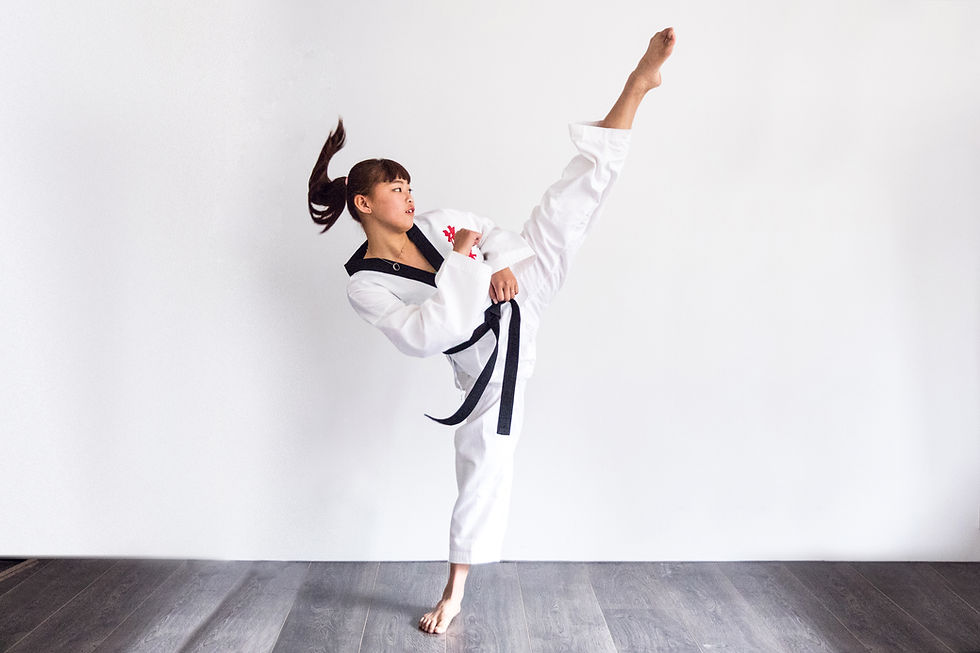Sensational Daily Experiences
- Kelly Moritz
- Oct 15, 2022
- 3 min read
Sensational Experiences Throughout The Day
In case you are not familiar with the words “sensory processing”, let’s get a simple working definition going:
Sensory processing is making sense of your internal feelings and your environment.
Your sensory system includes 8 systems/senses.
You have the OGs
i.e. think of your "5 senses" that tell you a lot about the environment
Touch (Tactile)
Smell (Olfactory)
Sight (Visual)
Taste (Gustatory)
Hearing (Auditory)
And your internal sensors that tell you a whole lot about what is happening inside your body:
Proprioception
Vestibular
Interoception

Proprioception is the awareness of our bodies in space. We get this awareness from sensors within our muscles and joints. This is the system that allows you to move through a hallway without running into anyone or know that your left hand is moving without having to look at it!

The vestibular sense is our sense of gravity, or balance and movement in space. It is the system that keeps track of your body and head in space and wants to keep you upright. Do you have difficulty with roller coasters or watching people spin? That is your vestibular system!

Interoception (my personal favorite)
is the internal sense of our body; including
hunger, thirst, emotions and heart beat.
Our daily lives are filled with sensory experiences- the cold or hot weather outside, the sound of traffic and blaring horns, the water running from a shower/bath, the fluorescent lights at work, crunchy or spicy food for lunch, the smell of dinner cooking, the overstimulating yells from your children in the next room. When you read these words, you can imagine each of these scenarios. How does each scenario make you feel? Calm? Or like you need to run away? Your response to these sensory experiences is called sensory processing. You may be sensitive to auditory stimuli (music in the background or unexpected noises) but unbothered by visual stimuli (overhead lighting, decorations on walls). Everyone has a unique sensory system and every single activity involves sensory processing.
My Morning Routine - Sensory Edition
7:00 AM- Wake up to an alarm I have snoozed 3 times (auditory), adjust to the light coming in from my window (visual stimulation), recognizing the weight of my body laying in bed (proprioception) and my body temperature as I kicked off all the blankets while I slept (interoception)
7:10AM- Brush my teeth with an electric toothbrush to wake up (oral motor input), realize I am hungry and still sleepy (interoception), make my smoothie & coffee (tactile, visual, auditory and proprioception) and sit down and eat my breakfast (gustatory)
7:45 AM- Take a hot shower (tactile, interoception, auditory) and get dressed for the day (visual stimulation, tactile, proprioception)
8:00 AM - Run out the door because I am late (interoception- noticing my heart beat and tight chest), get in my car and drive to work in traffic (auditory, proprioception, visual)
Think about if one of these systems were out of sync- let’s say I lacked proprioceptive awareness. I may bump into objects and family members during my morning routine. I may become tired easily and need to rest during activities or slump. I may have difficulties moving my body how I want it to move while getting dressed or walking from one task to the other. I may also seek deep pressure input and jump around frequently to remind myself where my body is in space.
Can you think of anyone in your life that has difficulties with any of these 8 sensory systems?
I know that I am personally auditory sensitive and have difficulty with proprioception/body awareness. In order to fill these needs for myself, I wear headphones when I am working and sit away from the door in coffee shops when I need to focus. I also wear clothes that are tighter fitting to provide deep pressure input and require many tight squeezes from my significant other and family throughout the day.
There are so many adaptations and resources for sensory processing difficulties! Reach out to an Occupational Therapist if you suspect your child or yourself are showing signs of difficulty throughout the day. Though it is important to note, we all have "sensory quirks" like preferring headphones at work or difficulty focusing on tasks without gum. These are wonderfully unique ways we navigate the world. It is a concern if you are not able to complete any tasks for long periods of times, constantly bumping into items or tripping, constantly needing to touch items, etc.


Comments